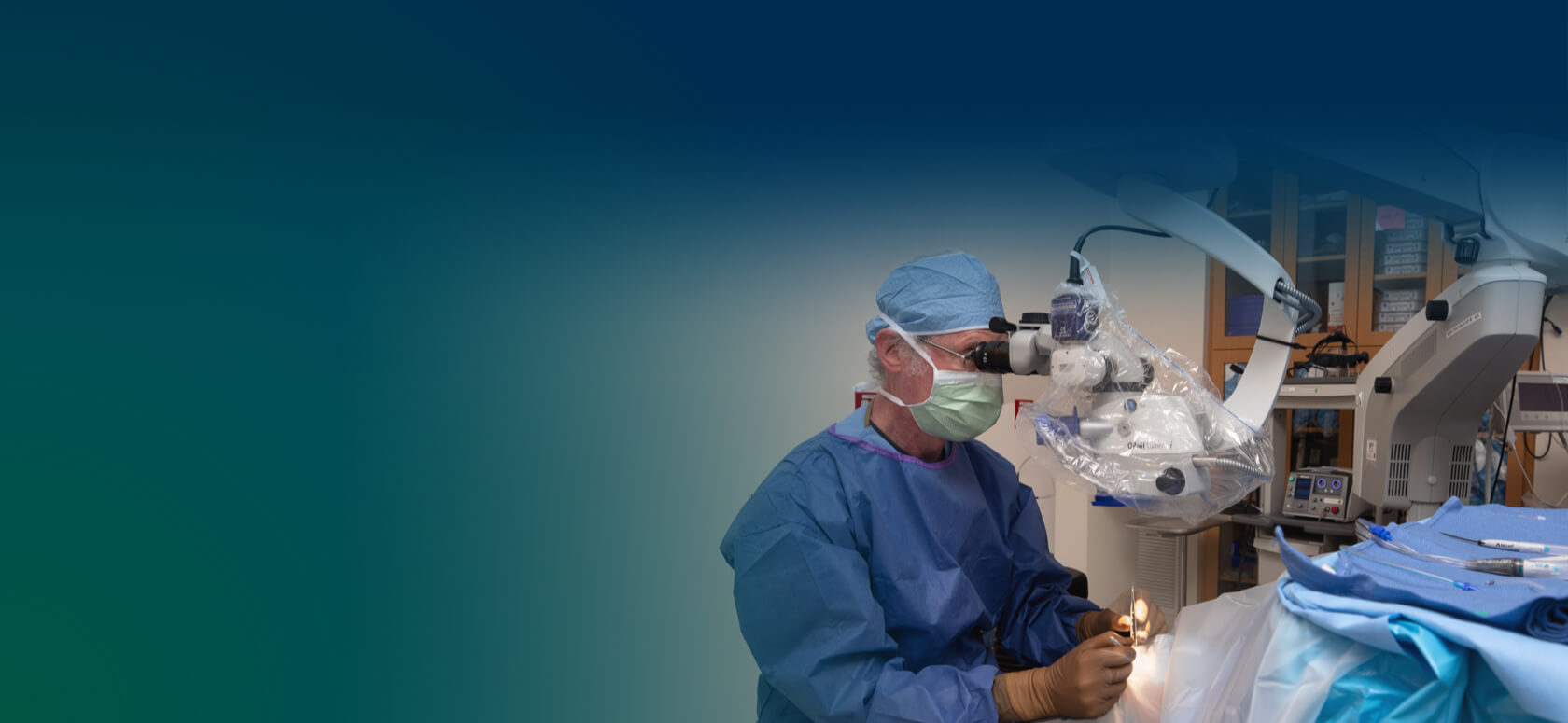How to Care for Yourself After Retinal Surgery
Following retinal surgery, it is important for you to follow a few instructions to maximize the success of surgery and to make for a smooth recovery.
-
Minimize activity the day of surgery following your operation. You may walk, read, and watch TV, but it is important to follow any positioning requirements that your surgeon may have given you. You can resume your normal diet but start with light foods and drink first. Do not drink alcoholic beverages for 24 hours after your surgery. Do not perform any “jarring” or strenuous activities like jumping, running, or straining until your surgeon has given you permission.
-
Keep the eye patch and shield on until the morning after surgery. Take the patch and shield off the morning after surgery and begin using your post-operative eye drops as directed. It is normal to see mucus and bloody discharge on the patch. The eye shield is not required after the first day following surgery, but it is OK to tape the shield in place between eye drop applications.
-
It is OK to take a bath or shower the day after surgery. You may wash your hair.
-
The following symptoms are normal after surgery and may continue for days or weeks afterwards:
- Blurred vision that is often worse immediately after surgery than before. Vision GRADUALLY improves and may take several months for maximum improvement
- Floaters
- “Lights” in the vision
- Eye irritation, often described as a “scratchy” sensation as if something were in your eye
- Light sensitivity
- Double vision
- Mild “ache” of the eye or around the eye often made worse with eye movements
-
It is normal to see the following signs after surgery and for days to weeks afterwards:
- A black eye
- A red, bloodshot eye
- Puffy eyelids and face – it is OK to use ice-packs or cold compresses twice a day.
- Excessive tearing, bloody tears, mucous discharge, and crusting of the eyelids
- “Bumps” on the white part of the eye to either side of the colored part of the eye.
-
It is NOT normal to experience severe pain after surgery. Severe pain of the eye, a severe headache, nausea or vomiting should be reported to your surgeon. Contact the office or, if the office is closed, call 916-379-7470 and ask to speak to the surgeon on call.
-
You may need to maintain a special position after surgery if a gas bubble is injected. Your retinal surgeon and nurses will have discussed this with you and provided you with a separate instruction sheet. Please refer to that instruction sheet for details regarding positioning requirements and restrictions.
-
You will be required to use eye drops after your surgery. Please read and follow the separate instruction sheet provided for eye drop usage. Bring all of your eye drops to each of your follow up visits. If you are using other eye drops, such as glaucoma drops, you should resume them the day after your surgery unless your surgeon has specifically asked you to stop.
-
Your surgeon may advise that you take time off of work to recover from your surgery. The amount of time off of work will depend on your surgery and the type of work that you do. If you need to apply for disability, please contact your place of employment. They may require that you submit disability forms and they will provide those forms or will advise you on where to obtain them.
-
Do not drive the day of surgery. We discourage driving until your surgeon has deemed it safe for you to do so.
-
Resume your normal medications immediately following surgery. Blood thinning medication (Warfarin, Coumadin, Aspirin, Plavix, Ticlid) can be restarted after your surgery. You may resume your normal diabetes medication when you have returned to your usual diet, usually within a few hours after surgery. If you have questions, your surgeon can advise you on restarting your medications or may ask that you consult with your internist, family doctor, or diabetes doctor to advise you.
-
Pain medication is often not necessary after retinal surgery. Acetaminophen (Tylenol) or ibuprofen (Advil, Motrin) will usually suffice in alleviating discomfort after surgery. Please use caution when taking these medications if you have liver, kidney disease, or a history of stomach ulcers. If you have any doubts about use of these medications, ask your doctor.
Understand that complications of surgery, although rare, do happen. Your surgeon will be monitoring your recovery to ensure as successful an outcome as possible. Some of the early follow up visits may be done by one of your surgeon’s partners. Each of them is an expert in diagnosing and treating retinal disease. They will communicate your progress to your surgeon. Your surgeon is always available to answer your questions. Messages will be relayed to your surgeon if he or she is not immediately available and you will be contacted as soon as possible. Emergent questions may be initially addressed by your surgeon’s associates if he or she is not available.
Contact us at these locations for questions or concerns (click office name for address and map):
-
Sacramento at 3 Parkcenter 916-454-4861
-
Grass Valley 530-273-8062
-
Chico 530-899-2251
-
Sacramento at Greenback Lane 916-339-3655
-
Elk Grove 916-714-5500
-
Modesto 209-549-8444
-
Stockton 209-938-0496
-
Roseville 916-774-0100
-
Folsom 916-293 - 9381
-
Fairfield 707-759 - 4942
After Hours Emergency Line 916-379-7470


